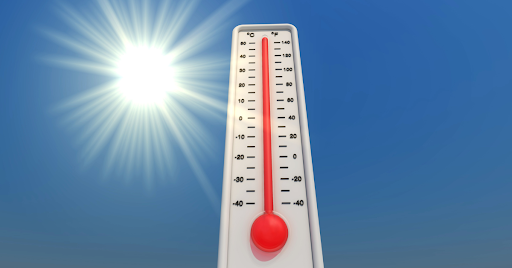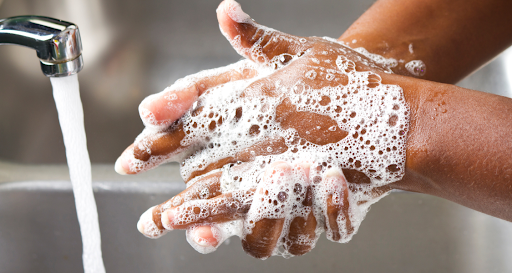How Heat Waves Affect Your Health and the Environment – Here's What You Should Know
3 min read
By DocGenie , Published on - 26 April 2025
The term “heat wave” is becoming increasingly common, especially in summer months. But what many don’t realize is how deeply they affect both our health and our environment. From hospital emergencies to wildfires and droughts, the impact is widespread and often life-threatening.
So, let’s unpack the effects of heat waves, their causes, and most importantly, how you can stay safe and prepared.
What Is a Heat Wave and What Causes It?
 A heat wave is a prolonged period of excessively hot weather, which may be accompanied by high humidity. It’s not just about feeling hot—it’s when temperatures soar far above the average for a region, often lasting several days or even weeks.
A heat wave is a prolonged period of excessively hot weather, which may be accompanied by high humidity. It’s not just about feeling hot—it’s when temperatures soar far above the average for a region, often lasting several days or even weeks.Causes of Heat Waves:
- High-pressure systems that trap heat near the ground
- Climate change, which increases the frequency and intensity of extreme weather events
- Urban heat islands, where cities absorb and retain more heat
- Deforestation and land use changes, reducing natural cooling effects
Understanding the causes of heat waves helps us prepare for them better and demand environmental policies that promote sustainability.
How Does a Heat Wave Affect Human Health?
 Heat waves aren’t just uncomfortable—they’re dangerous. Especially for children, the elderly, and people with chronic health conditions.
Heat waves aren’t just uncomfortable—they’re dangerous. Especially for children, the elderly, and people with chronic health conditions.Heat Wave Health Risks:
- Heatstroke: A medical emergency where the body temperature rises above 104°F (40°C)
- Dehydration: Loss of fluids can lead to confusion, weakness, and collapse
- Heat exhaustion: Symptoms include dizziness, heavy sweating, nausea, and muscle cramps
- Sunburn and skin damage
- Respiratory issues: Due to increased pollution and allergens
- Cardiovascular strain: Increased heart rate and blood pressure fluctuations
If you’re wondering how a heat wave affects human health, remember it impacts every system in the body, particularly if you’re exposed for long hours without hydration or shelter.
What Are the Effects of Heat Waves on the Environment?
It’s not just people who suffer—our planet does too.
Effects of Heat Waves on the Environment:
- Increased wildfires: Dry vegetation and high temperatures fuel large-scale forest fires
- Drought and water scarcity: Prolonged heat dries up rivers, lakes, and groundwater
- Crop failures: Heat stress destroys yields of grains, fruits, and vegetables
- Animal deaths and habitat loss
- Melting glaciers and ice caps, contributing to rising sea levels
- Power grid failures due to high electricity demand for cooling systems
These effects of heat waves on the environment also circle back to affect human food supply, water resources, and air quality.
How to Prevent Heat Wave Health Emergencies
We can’t control the weather, but we can control how we respond to it.How to Prevent Heat Wave Health Risks:
- Stay indoors during peak hours (12 PM to 4 PM)
- Hydrate regularly, even if you don’t feel thirsty
- Wear loose, light-colored cotton clothes
- Avoid caffeine, alcohol, and heavy meals
- Use fans, cool showers, and wet towels to lower body heat
- Check on elderly family members or neighbors
- Use sunscreen and sunglasses when outdoors
these small steps can go a long way in preventing heat-related illnesses.
How to Prepare Your Home for a Heat Wave
Your living space can be a protective shield—or a heat trap. Here’s how to make it safer.
- Keep curtains closed during the day
- Install shades or reflective films on windows
- Use natural ventilation in early morning and late evening
- Invest in insulation or cooling appliances if possible
- Avoid using heat-generating appliances during the day
Planning ahead is one of the best strategies for how to prevent heat wave effects on your daily life.
Long-Term Solutions to Combat Heat Waves
Individual steps help, but long-term action is necessary to reduce the frequency and severity of heat waves.
- Plant more trees to create natural cooling zones
- Adopt sustainable living practices (reduce plastic, save energy, use water very carefully)
- Support green energy initiatives
- Push for climate-focused government policies
- Educate communities about heat wave preparedness
Addressing the root causes of climate change is the only way to reduce heat wave health risks and environmental damage in the long run.



